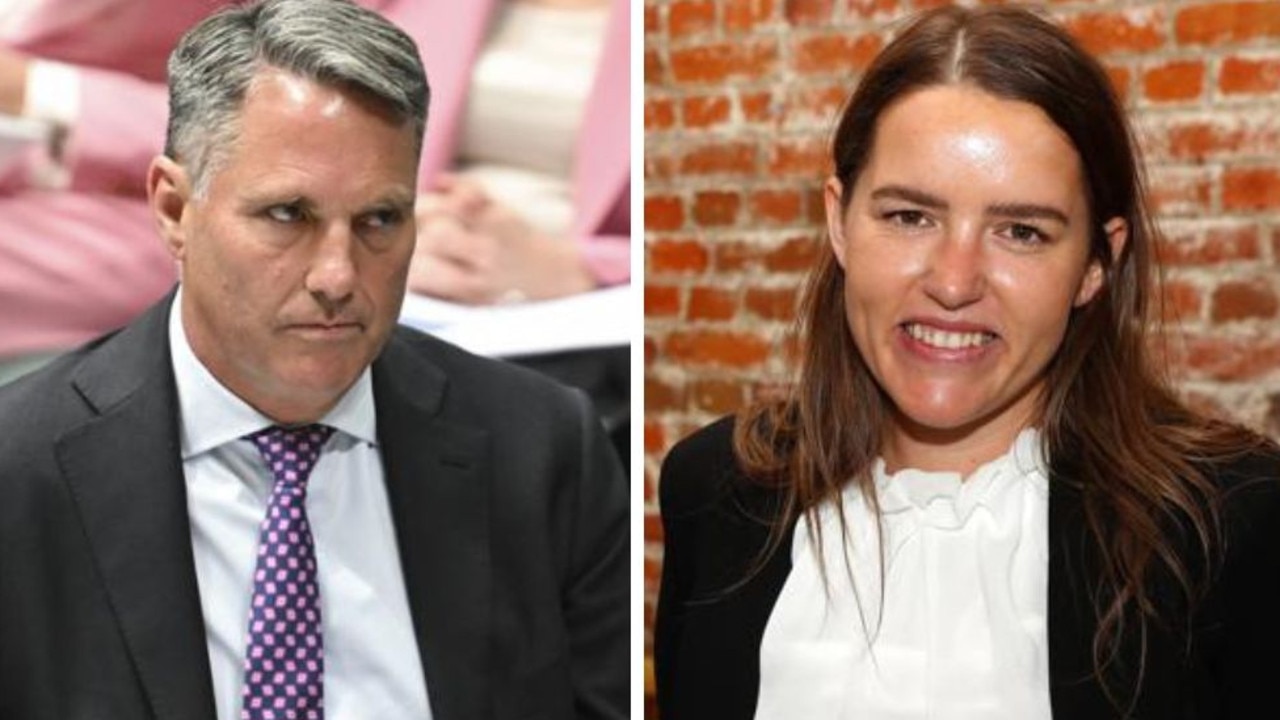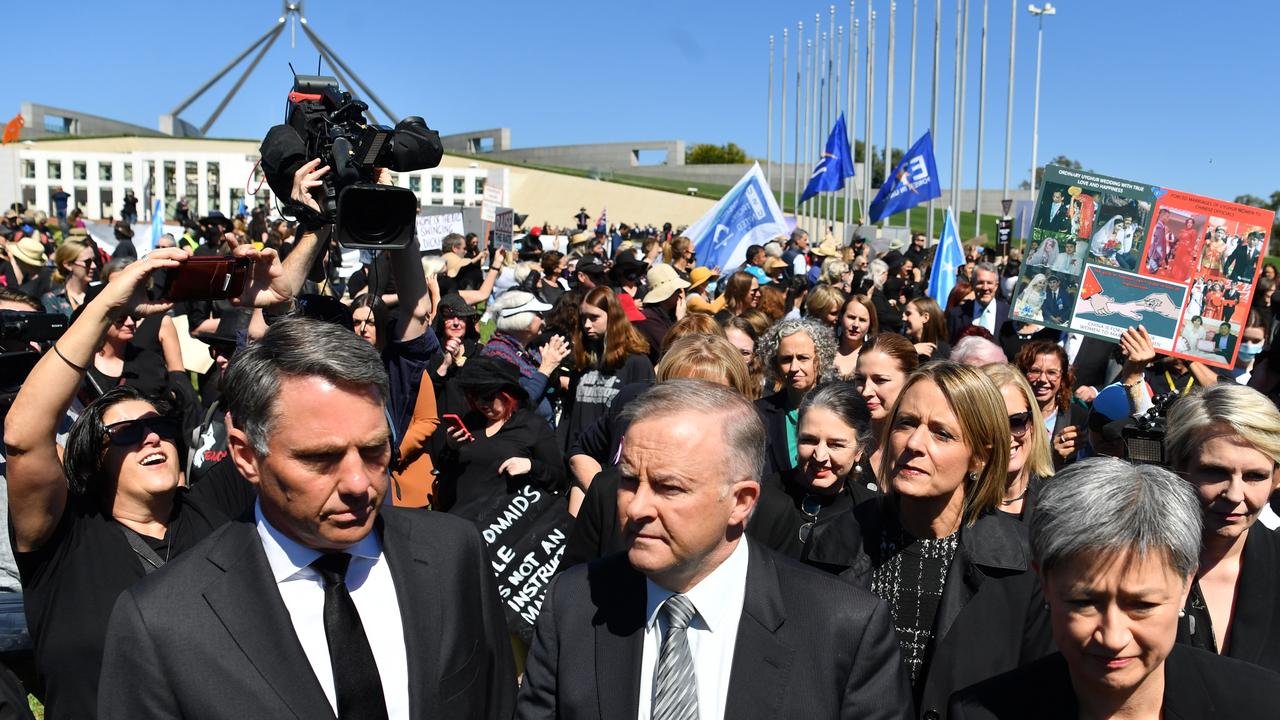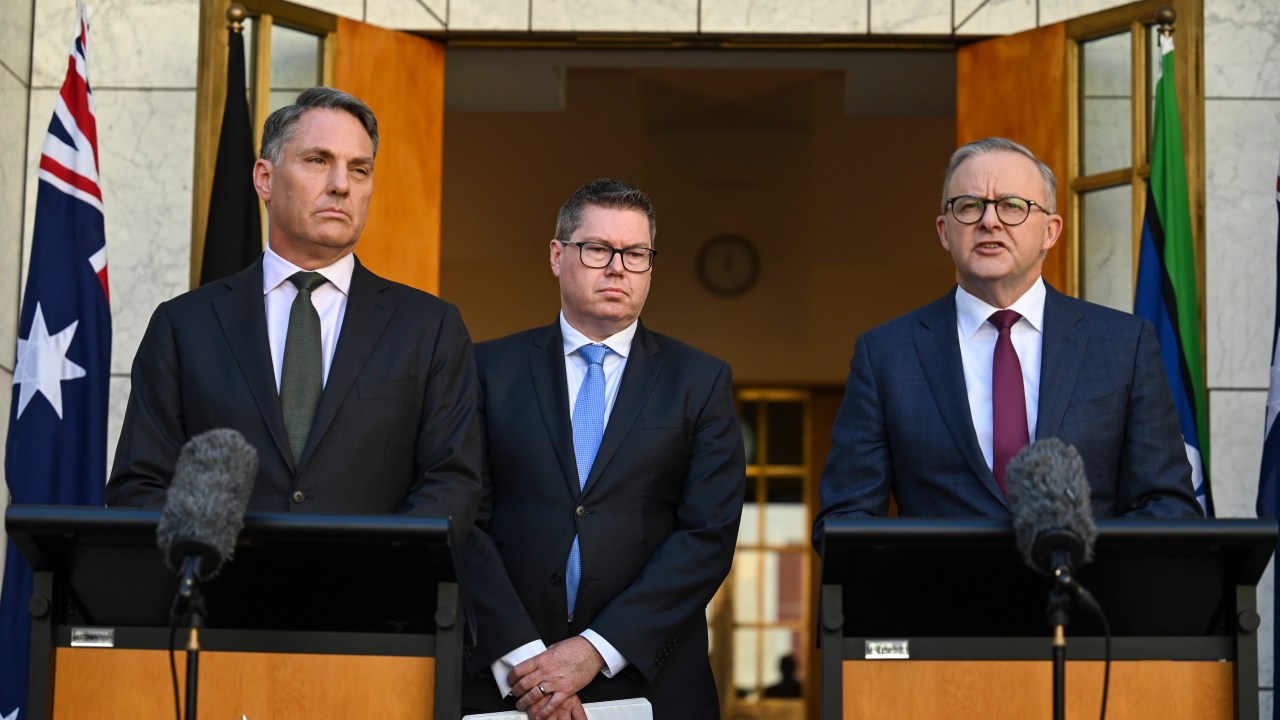Richard Marles’ journey from within the Australian Labor Party to his current role as Deputy Prime Minister offers a compelling narrative of political ambition, strategic maneuvering, and significant policy influence. This exploration delves into his career trajectory, examining key appointments, legislative achievements, and the evolution of his political stances. We will also analyze his approach to the demanding responsibilities of his current office, focusing on his foreign policy views, particularly concerning Australia’s relationship with China, and his leadership style as demonstrated in various public and political situations.
This in-depth examination will provide a comprehensive understanding of Richard Marles’ impact on Australian politics, offering insights into his policy positions on climate change, economic development, national security, and his overall public perception. We will analyze media coverage, explore his communication style, and showcase illustrative examples of his leadership to paint a complete picture of this prominent figure in Australian political life.
Richard Marles’ Political Career
Richard Marles’ career exemplifies a steady ascent within the Australian Labor Party, marked by significant policy contributions and increasing responsibility. His trajectory showcases a commitment to key ALP values while also demonstrating adaptability and strategic political maneuvering. This detailed examination explores his career progression, highlighting key appointments and legislative achievements, and comparing his political stances with those of other prominent figures within the party.
Richard Marles, Australia’s Deputy Prime Minister, is known for his significant role in shaping the nation’s foreign policy. For a different kind of puzzle, you might enjoy tackling the challenges presented by the daily nyt crossword clues ; perhaps Marles himself could find a moment for a relaxing diversion from the complexities of governance. His insightful approach to international relations suggests he might even excel at deciphering cryptic clues.
Career Progression within the Australian Labor Party
Richard Marles’ journey within the ALP began with his involvement in various party activities before securing a seat in the Australian House of Representatives. His early career focused on building a strong local base and establishing himself as a credible voice within the party. Subsequently, he steadily climbed the ranks, gaining prominence through his contributions to policy debates and his effectiveness as a member of parliament.
His dedication and consistent performance within the party led to progressively more senior roles and responsibilities.
Key Political Appointments and Roles
Marles’ career has been marked by several key appointments reflecting his growing influence within the ALP. A timeline illustrating these advancements provides a clear picture of his progression:
- [Year]: Elected to the House of Representatives for the seat of [Seat Name].
- [Year]: Appointed to the [Committee/Portfolio] Shadow Ministry.
- [Year]: Served as [Role] within the Shadow Cabinet.
- [Year]: Appointed to the [significant portfolio] in the [Government/Shadow Government].
- [Year]: Became Deputy Prime Minister of Australia.
Note
Specific years and positions require verification from reliable sources such as the Australian Parliament House website or reputable news archives.*
Significant Policy Contributions and Legislative Achievements
Marles has been involved in the development and implementation of several key policy initiatives. His contributions often reflect the ALP’s focus on social justice, economic fairness, and national security. For example, his work on [Specific policy area, e.g., industrial relations reform] involved [brief description of his role and impact]. Furthermore, his involvement in [Another specific policy area, e.g., national security policy] demonstrates his strategic thinking and understanding of complex issues.
Specific legislative achievements require further research and should be documented from official sources.
Comparison of Political Stances with Other Prominent ALP Figures
Marles’ political stances often align with the broader ALP platform, yet he possesses a distinct style and approach. Comparing his views with those of other prominent figures like [Name of prominent ALP figure 1] and [Name of prominent ALP figure 2] reveals both common ground and areas of subtle difference. For instance, while he shares [Name of prominent ALP figure 1]’s commitment to [Policy area], his approach to [Specific aspect of the policy] may differ in [Explain the difference].
Similarly, his stance on [Policy area] might show a nuanced variation compared to [Name of prominent ALP figure 2]’s more [Describe the difference in approach]. A detailed comparative analysis requires a deeper dive into their individual policy statements and voting records.
Marles’ Role as Deputy Prime Minister
Richard Marles’ appointment as Deputy Prime Minister of Australia under Prime Minister Anthony Albanese represents a significant position within the Australian government. This role carries substantial responsibilities, encompassing both political leadership and executive functions. His performance in this capacity has shaped the government’s agenda and its public image.The Deputy Prime Minister’s responsibilities are multifaceted. They act as the second-in-command, assuming the Prime Minister’s duties in the event of absence or incapacity.
Beyond this crucial role of succession, the Deputy Prime Minister often holds a significant portfolio, contributing directly to policy development and implementation across government departments. Furthermore, they play a key role in cabinet deliberations, representing a vital voice in shaping government policy and strategy. The extent of their specific responsibilities often depends on the Prime Minister’s delegation and the Deputy Prime Minister’s own portfolio.
Marles’ Approach to the Deputy Prime Ministership
Marles’ approach to his responsibilities has been characterized by a focus on collaboration and a pragmatic approach to policy-making. He has emphasized the importance of working closely with the Prime Minister and other members of the cabinet to achieve the government’s objectives. This collaborative style has been evident in his public pronouncements and interactions with other ministers. He actively engages in public discourse, presenting the government’s position on key issues while demonstrating a willingness to listen and engage in constructive dialogue.
Examples of Marles’ Public Pronouncements and Actions
Marles’ public appearances have consistently showcased his commitment to the government’s agenda. For instance, during debates on national security, he has articulated the government’s strategy, highlighting the importance of alliances and regional partnerships. His statements on climate change have reinforced the government’s commitment to ambitious emissions reduction targets and its investment in renewable energy. His actions in representing Australia internationally have further demonstrated his dedication to fostering strong relationships with key partners.
These public pronouncements and actions have contributed to shaping public perception of the government’s policies and priorities.
Richard Marles, Australia’s Deputy Prime Minister, is known for his insightful political commentary. If you enjoy word puzzles and are looking for a stimulating challenge, you might find yourself enjoying the clever wordplay found in the nyt crossword clues ; they often require a similar level of lateral thinking to deciphering political strategies. Understanding Marles’s pronouncements, therefore, might be surprisingly similar to solving a particularly challenging NYT crossword.
Key Policy Initiatives and Decisions
As Deputy Prime Minister, Marles has been involved in several key policy initiatives and decisions. His contributions have been significant across various portfolios. Specific examples require detailed research into official government records and press releases to provide accurate and verifiable information. A comprehensive analysis would necessitate referencing official government documents and credible news sources to accurately detail his specific policy involvement and impact.
This would allow for a precise and factual account of his contributions to policy formulation and implementation.
Marles’ Key Policy Positions
Richard Marles’ policy positions reflect a blend of pragmatism and progressive ideals, shaped by his long career in Australian politics. His stances on key issues like climate change, economic development, and national security are often nuanced and reflect the complexities of these challenges.
Climate Change Policy
Marles has consistently advocated for ambitious climate action. He supports the transition to a clean energy economy and has emphasized the economic opportunities presented by this shift. His approach focuses on a practical balance between environmental protection and economic growth, aiming for policies that both mitigate climate change and enhance Australia’s competitiveness in a global green economy. For example, he has been a vocal supporter of increased investment in renewable energy technologies and the development of a robust carbon pricing mechanism, while acknowledging the need for a just transition for workers and communities reliant on traditional industries.
He has publicly stated the need for Australia to meet its emissions reduction targets and play a leadership role in international climate negotiations.
Economic Development and Trade
Marles’ perspective on economic development emphasizes the importance of diversifying the Australian economy and strengthening its international trade relationships. He recognizes the vital role of trade in generating economic growth and creating jobs. However, his approach prioritizes fair trade practices and ensuring that economic growth benefits all Australians, not just a select few. He advocates for policies that support small and medium-sized enterprises (SMEs), promote innovation, and invest in infrastructure development.
Statements made during his time in parliament have highlighted the need to balance the benefits of globalization with the need to protect Australian industries and workers from unfair competition. He has emphasized the importance of strengthening trade relationships with key partners in the Indo-Pacific region and engaging constructively in multilateral trade forums.
National Security and Defence
Marles’ views on national security and defence reflect a commitment to maintaining Australia’s sovereignty and regional security in an increasingly complex geopolitical environment. He has emphasized the importance of strengthening Australia’s defence capabilities and enhancing its alliances with key partners, particularly the United States. His approach focuses on building a more robust and adaptable defence force capable of responding to a range of threats, including terrorism, cyber warfare, and the growing influence of China in the Indo-Pacific.
Publicly, Marles has championed increased defence spending, modernization of the armed forces, and closer cooperation with regional allies. He has consistently stressed the importance of a strong and credible defence posture as a deterrent to potential aggression and a foundation for regional stability.
Illustrative Examples of Marles’ Leadership: Richard Marles
Richard Marles’ career demonstrates a consistent pattern of leadership characterized by strategic thinking, collaborative efforts, and effective communication. His actions, both in the face of challenges and during periods of relative stability, reveal a nuanced and adaptable leadership style. The following examples highlight specific instances showcasing his capabilities.
Marles’ Response to the AUKUS Submarine Deal Challenges
The announcement of the AUKUS submarine deal presented significant challenges, including navigating complex international relations and managing domestic political sensitivities. Marles, as Deputy Prime Minister and Defence Minister, played a crucial role in this process. He engaged in extensive consultations with key stakeholders, including the US and UK governments, as well as Australian industry and opposition parties. His approach involved transparent communication regarding the complexities of the deal, proactively addressing concerns and fostering a sense of national unity around this critical strategic initiative.
This resulted in a more widely accepted and supported approach to the acquisition of nuclear-powered submarines than might otherwise have been achieved. The successful negotiation and public communication surrounding the AUKUS agreement stand as a testament to his leadership in navigating complex and high-stakes situations.
Marles’ Approach to Addressing Defence Capability Gaps, Richard marles
A significant challenge facing the Australian Defence Force was the identification and subsequent mitigation of capability gaps in its defence systems. Marles approached this issue with a methodical, data-driven strategy. He commissioned independent reviews and analyses to identify the specific shortcomings, and then worked with the defence industry and international partners to develop innovative solutions. This involved not only focusing on procuring new technologies but also investing in personnel training and infrastructure upgrades.
His focus on a holistic approach, addressing both the technological and human elements of the problem, ensured a more comprehensive and sustainable outcome, enhancing the overall readiness and effectiveness of the Australian Defence Force.
Marles’ Address to Parliament on National Security
In a significant address to Parliament on national security, Marles employed a clear and measured communication style. The context was a period of heightened geopolitical uncertainty, and his speech aimed to reassure the Australian public while outlining the government’s strategic response. He spoke with a calm, authoritative tone, avoiding sensationalism while highlighting the seriousness of the challenges. He used plain language, avoiding overly technical jargon, making the complex issues accessible to a broad audience.
His speech received positive feedback for its clarity, honesty, and its ability to convey both the gravity of the situation and the government’s commitment to addressing it. The overall response from Parliament and the wider public reflected a positive reception to his communication approach, building confidence and fostering a sense of national unity.
Richard Marles’ career represents a fascinating case study in Australian politics. From his early days within the Labor Party to his current position as Deputy Prime Minister, his journey reflects both the challenges and opportunities inherent in navigating the complexities of Australian political life. His foreign policy stances, particularly regarding China, his leadership style, and his policy positions on key issues like climate change and national security, continue to shape the political landscape.
This analysis offers a comprehensive overview, highlighting his contributions, challenges, and the overall impact of his leadership on Australia’s domestic and foreign policy.
Query Resolution
What is Richard Marles’ educational background?
Information on Richard Marles’ educational background would need to be sourced separately.
What are Richard Marles’ key policy achievements as a member of Parliament before becoming Deputy Prime Minister?
Details of his achievements as a member of Parliament prior to his current role require further research beyond the provided Artikel.
What is Richard Marles’ family background?
This information is generally considered private and would need to be researched from independent sources.




